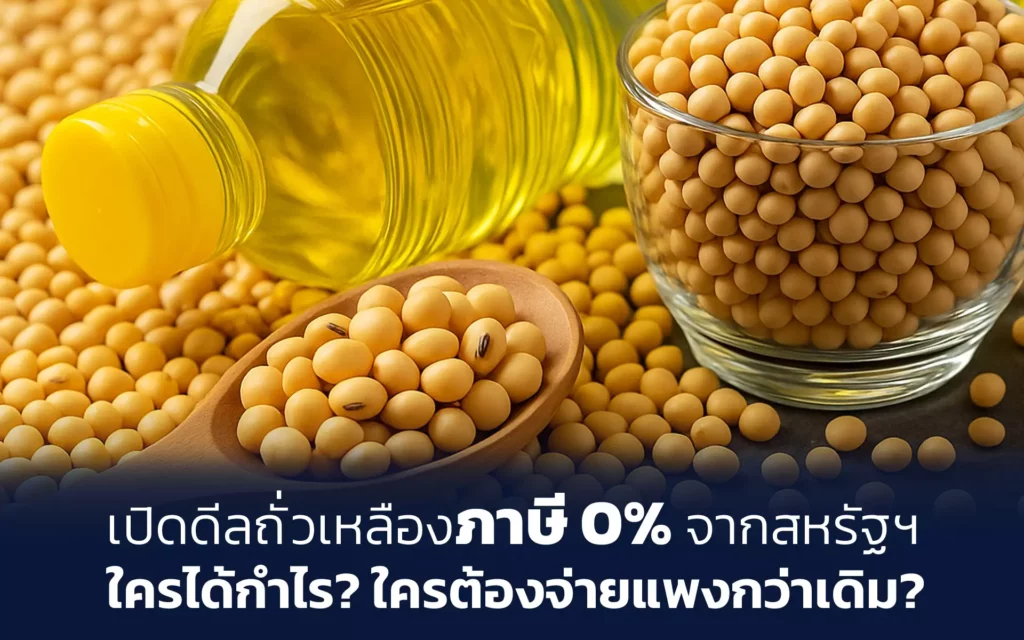



In an effort to balance international trade, Thailand has decided to allow U.S. soybeans to enter the market tariff-free. However, this tariff reduction doesn't just affect foreign producers…
Because the important question is, “Who in the country will bear the costs of this deal?”
While many see market opening as an opportunity, hidden details reveal that Thai consumers and businesses may have to pay more than they anticipated.
The Soybean Situation in Thailand: The Numbers You Should Know
Meanwhile, Thailand imports over 5 million tons of soybeans and soybean meal per year, which are used for two main purposes:
Thailand imports both types of products from two main countries: Brazil (80%) and the United States (20%).
But the interesting thing is that the “cost” of the two countries is very different:
Soybean production cost per rai (2025):
This means: Even with zero import tariffs from the US, the cost of American soybeans is still “higher” than Brazilian soybeans by an average of 1.6 baht/kg.
National Impact: Who Wins, Who Loses?
Thai farmers: Little impact, but that doesn’t mean we can be complacent.
Although production costs in Thailand are higher than in other countries, farmers can still sell at an average guaranteed price of 20 baht/kg.
Therefore, production may not decrease immediately, but in the long term, if import prices decrease and imports increase, farmers may have to adjust.
Oil palm growers: indirect benefits
Because imported soybean oil is still more expensive than domestic palm oil.
Therefore, it does not affect the market price much.
Entrepreneur: In a vulnerable position
Animal feed mills may incur additional costs if they import soybean meal from the US instead of Brazil, due to the higher cost of US soybeans, even with a 0% tariff.
Consumers: Burdened by the price of consumer goods
Soybean oil, tofu, soy milk — familiar everyday products may see their prices rise as the cost of imported raw materials from the US is higher than Brazil, and this price may eventually be reflected to consumers.
Conclusion: Are 0% tax deals really that good?
While this sounds like a golden opportunity for trade, when you look deeper into the details, a zero-tariff deal for US soybeans could actually result in increased costs, and the real beneficiaries could be “local Thais.”
Source: Thansettakij